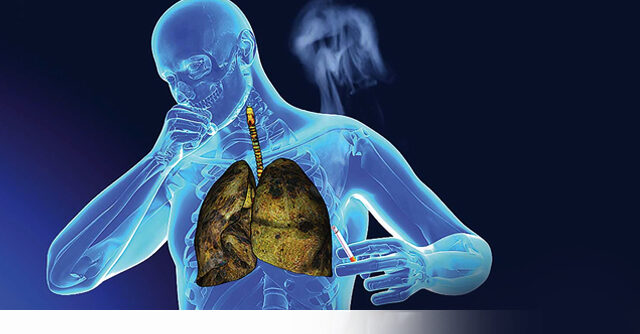The lungs are two spongy organs in the chest that take in oxygen when you inhale and release carbon dioxide when you exhale, and cancer is a disease caused when cells divide uncontrollably and spread into surrounding tissues.
Dr. Joseph Chandia, a surgeon at Wezacare Hospital Kampala, has said lung cancer is the 13th most common cancer in Uganda, and its occurrence is rapidly growing, with women representing about 56.55% of the infection rate, affecting mostly people over the age of 60.
According to Dr. Chandia, lung cancer is a type of cancer that starts in the lungs and spreads to other parts of the body.
He noted that the common presentations of lung cancer are a persistent cough that gets worse, coughing up blood or rusty-colored sputum (spit or phlegm), chest pain that is often worse with deep breathing, coughing, loss of appetite, unexplained weight loss, shortness of breath, feeling tired or weak, infections such as bronchitis and pneumonia that don’t go away or keep coming back, and a new onset of wheezing.
Dr. Chandia revealed that tobacco smoke is among the biggest factors in lung cancer, so the risk for people who smoke tobacco is many times higher than for people who don’t smoke.
“The longer you smoke, the greater your risk of getting cancer. In Uganda however, about 78.7% of lung cancer patients are non-smokers; however, worldwide, smoking is by far the leading risk factor for lung cancer,” Dr. Chandia added.
However, he noted that second-hand smokers, also known as passive smokers (people who don’t smoke but get exposed to smoke from smokers), can also develop lung cancer.
According to Dr. Chandia, people who get cancer from exposure to asbestos (fibrous minerals that are resistant to heat and corrosion), such as those who work in mines, mills, textile plants, and shipyards, and from places where insulation is used, are more likely to get lung cancer.
He also added that people who get exposed to radon (a naturally occurring radioactive gas) that results from the breakdown of uranium in soil and rocks, which you can’t see, taste, or smell, risk getting lung cancer.
Dr. Chandia further stated that exposure to other cancer-causing agents in the workplace, such as inhaled chemicals like arsenic, beryllium, cadmium, silica, vinyl chloride, nickel compounds, chromium compounds, coal products, mustard gas, diesel exhaust, and chloromethyl (which appears as a colorless liquid, slightly denser than water and insoluble in water, may be moderately toxic by ingestion, inhalation, or skin absorption, and severely irritates skin, eyes, and mucous membranes), can lead to lung cancer.
How to Prevent Lung cancer
According to Dr. Chandia, people should stay away from smoking tobacco, as it is the best way to reduce the risk of lung cancer. He suggests avoiding breathing in other people’s smoke, avoiding exposure to radon and asbestos, and, most importantly, limiting cancer-causing agents to reduce the risk of getting cancer.
“Eat a healthy diet by having a lot of fruits and vegetables in your daily diet, and the best outcome is through early detection, which leads to early treatment. However, for those who are sick of lung cancer, the treatments are chemotherapy and biological therapy, which are the common treatment modalities used,” he said.
He advised that those who are at increased risk, with symptoms, signs, and recurrent chest infections such as pneumonia, tuberculosis, should seek medical advice and have an appropriate test carried out to screen for lung cancer.
He noted, however, that in Uganda, most lung cancer patients are at advanced stages (stage 3 or 4), with about 96.1% in stage 4. This results in high mortality, with a median survival time of only 4.4 months.
He advised that in Uganda, aggressive public sensitization is necessary, especially among the middle-aged and non-smokers, to detect early cancer and improve outcomes.















